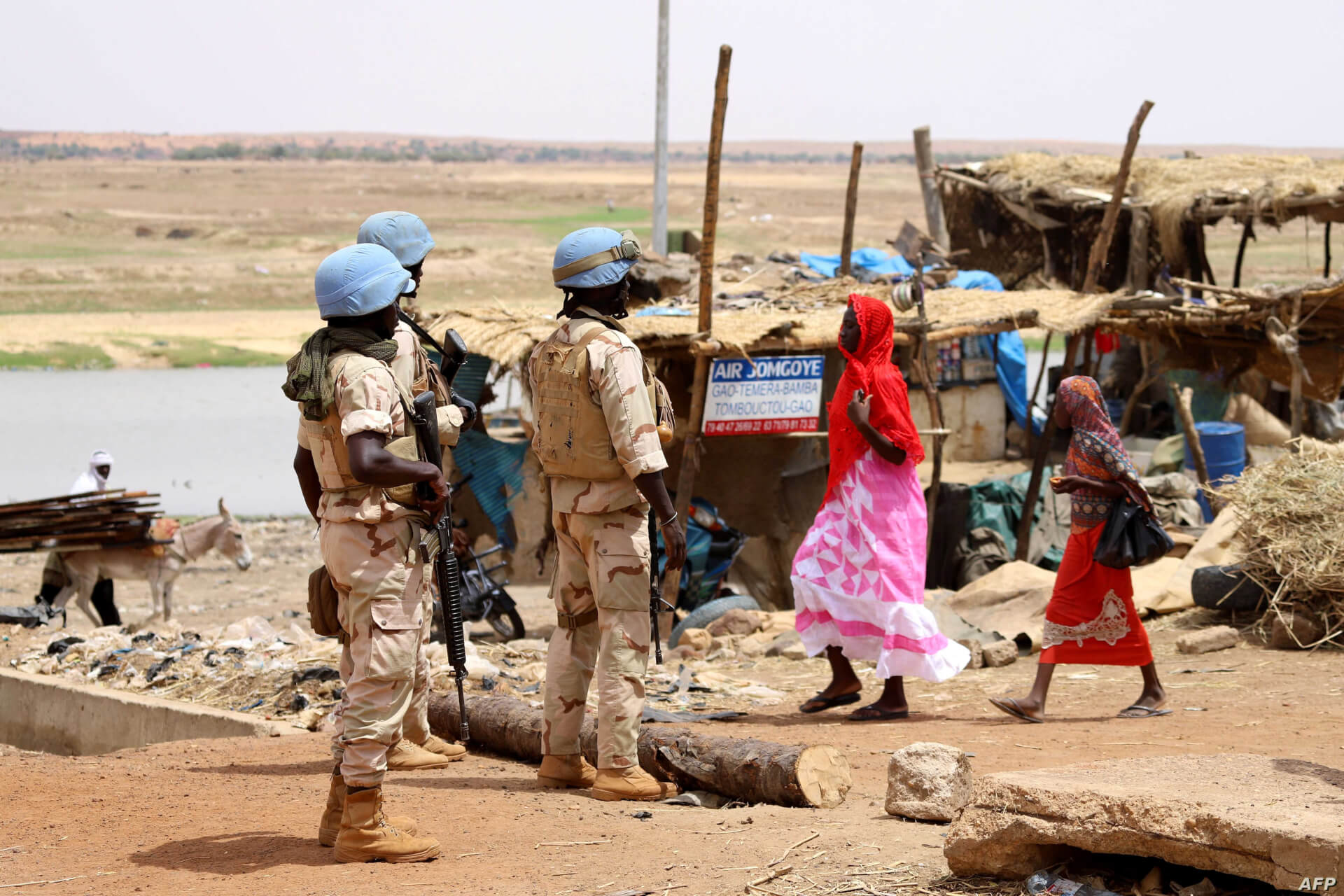Three United Nations peacekeepers were killed and four were seriously injured by an improvised explosive device (IED) in the region of Aguelhok in northern Mali. Mahamat Saleh Annadif, the UN mission chief in Mali, said, “We will combine all efforts to identify and apprehend those responsible for these terrorist acts so that they can answer for their crimes.”
The United Nations Multidimensional Integrated Stabilization Mission in Mali (MINUSMA) was launched in 2013 and is staffed by around 13,000 soldiers. It works with the French military to fight against terrorist groups in the region. The conflict started in Mali in 2012 when a Tuareg movement known as the Mouvement national pour la libération de l’Azawad (MNLA), alongside the Islamic armed groups including Ansar Dine, Al-Qaida in the Islamic Maghreb (AQIM), and the Mouvement pour l’unicité et le jihad en Afrique de l’Ouest (MUJAO) rebelled against government forces in the north of the country. However, tensions soon emerged between the rebelling groups. Ansar Dine and MUJAO, for instance, drove MNLA out of the towns of Gao, Timbuktu, and Kidal. Additionally, conflict in the region is quickly spreading across borders to neighboring Burkina Faso and Niger. Thus, the conflict spans across vast areas of land with multiple warring parties.
The UN peacekeepers are thus working in a highly dangerous environment and are prime targets for armed militant groups. In fact, it is the UN’s most dangerous peacekeeping mission, with 204 peacekeepers killed so far. In January of this year, a UN military base sustained a rocket attack. Eighteen peacekeepers were wounded in that attack. In October 2019, one peacekeeper was killed and four were wounded when a patrolling vehicle hit an explosive device. Both of those attacks also took place in northern Mali.
UN spokesman Stephane Dujarric said Secretary-General Antonio Guterres condemned the recent attack. Dujarric said that Guterres called on Malian authorities to “to spare no effort in identifying the perpetrators of these attacks so that they can be brought to justice swiftly”. Dujarric confirmed that the UN retains its commitment to “supporting the people and Government of Mali in their pursuit of peace and stability” even in the face of “such cowardly acts”.
The region has multiple multilateral peacekeeping and anti-terrorism teams. For instance, the G5 Sahel coordinates counterterrorism measures between Mauritania, Mali, Niger, Burkina Faso, and Chad. France, too, has had a presence in the region since 2012, when militant groups first took over northern Mali.
In January, President Emmanuel Macron announced that France would be deploying a further 220 troops to the Sahel region to support its existing 4500 troops following the death of 13 French soldiers in Mali. There are also 7,000 American troops in Mali.
It remains to be seen how the coronavirus crisis will impact international commitment towards anti-terrorism operations in the region, but the UN confirmed that it is sending reinforcements to the area following this latest attack.
Image Source: Voice of America
IED Kills Three UN Peacekeepers in Northern Mali
The UN reiterated its commitment to supporting the Malian people and government.
May 12, 2020

